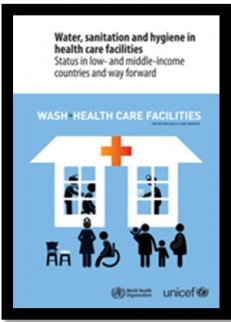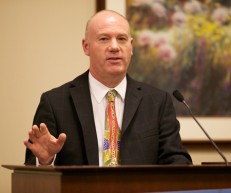Related Posts
Our Water Institute leader
I’ve noticed over the years that those of us who haven’t spent entire careers in academia often are much more aware of the need to demonstrate the value and impact of the work we do. ROI – “return on investment” – is a broad way to characterize that impact.
Five years at the National Cancer Institute sensitized me to the issue of impact. Legislators consistently, if indirectly, asked, “So, what did we get from this investment?” As we’re not selling widgets in public health or cancer control, we must find ways to establish, measure and communicate metrics that attempt to answer this question. In the arms race for resources, there are no guarantees of support. We must earn it by the impact we achieve.
That’s one of the reasons I particularly appreciate Jamie Bartram, PhD. Dr. Bartram is the Holzworth Distinguished Professor of Environmental Sciences and Engineering and director of the Water Institute at UNC. Since coming to the Gillings School five years ago from the World Health Organization, Jamie and his colleagues have made the Water Institute a force to be reckoned with.

Dr. Jamie Bartram is part of a team that this week released a significant report with recommen-dations to ensure safe water and sanitation in health care.
Just a few impact examples: their Water and Health Conferences now are the go-to meetings for researchers and other experts in water. Organizations are changing their water policies because of the Institute’s work. Jamie has been part of the team that this week released a very significant new report with recommendations to ensure safe water and sanitation in health care. Jamie and his team are monitoring their accomplishments and reporting back.
Those of us who receive state, federal and donor funding owe those organizations accountability, and we must get better and better about reporting what we have achieved. In our School, this is especially important. We are committed deeply not only to discovering new knowledge but also to transforming the findings into evidence-based programs, policies and practices that improve the lives of people across North Carolina and around the world. Our faculty members are really good at this; we must get even better at scaling up effective programs so they make a difference on larger and larger scales. And that’s one of the reasons I love the Gillings School!
Have a great day. Barbara

